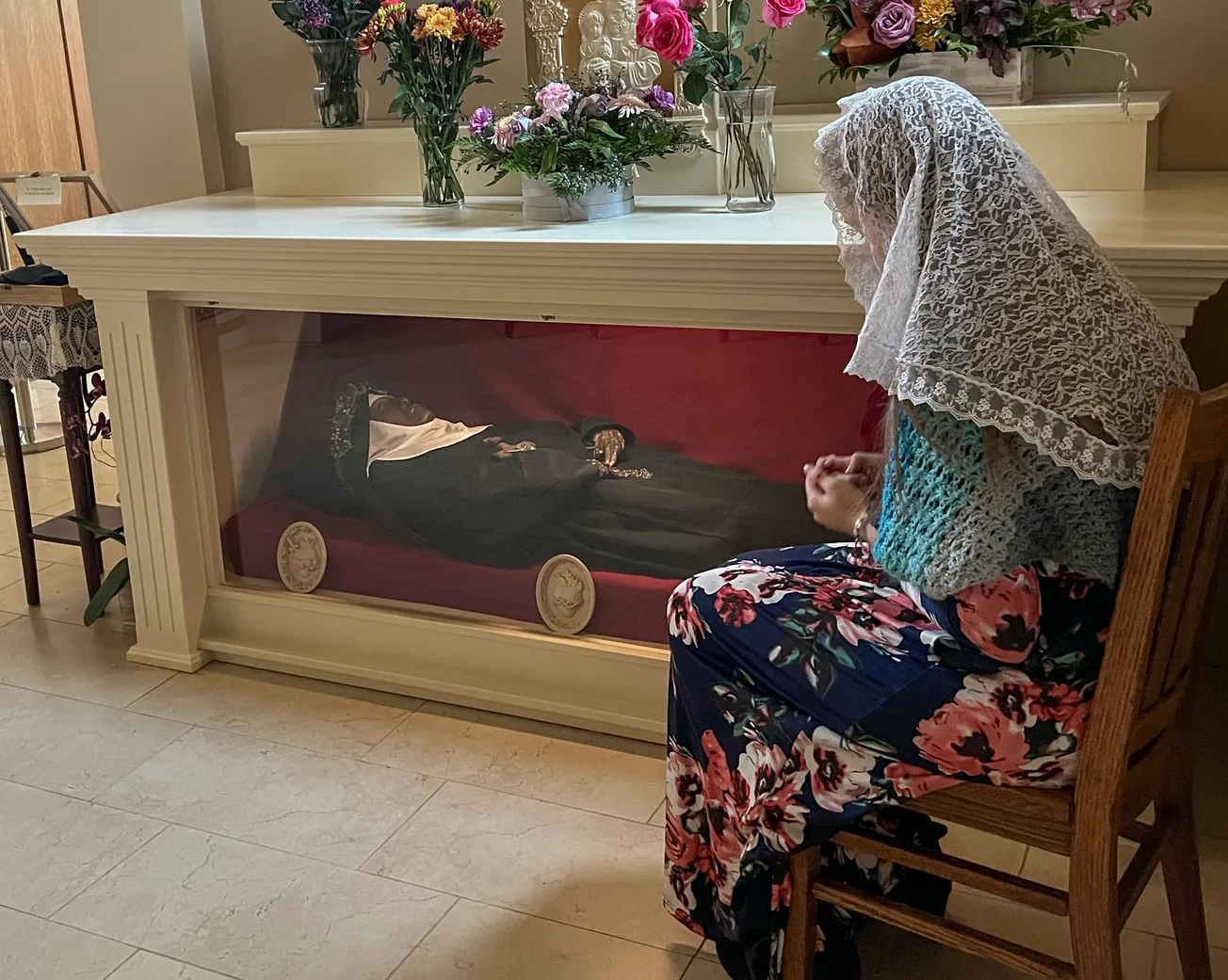An official investigation supports claims of incorruptibility concerning Mother Mary Wilhelmina Lancaster, the African-American Benedictine nun who made waves in April 2023 after her body was exhumed by her traditionalist order of nuns in rural Missouri.
The Diocese of Kansas City-St. Joseph, which enlisted the help of medical experts, released the results of their inquiry in late August of this year.
“In the final report, the investigative team noted that the condition of Sister Wilhelmina’s body during the examination was notable for a lack of any detected features of decomposition,” wrote Bishop James V. Johnston Jr. in a statement.
“The report also noted that the related history of Sister Wilhelmina’s death and interment does not describe conditions that would be expected to protect against decomposition.”
NEW: The Diocese of Kansas City-St. Joseph has released the results of its investigation into the seemingly incorrupt corpse of Black Catholic nun and convent foundress Mary Lancaster, OSB—which drew thousands to Gower, Missouri, in 2023.
— Nate Tinner-Williams (@natemup) August 22, 2024
Full statement: https://t.co/stV7nnh1h3 pic.twitter.com/kc9t0cfoW2
The beginnings of the investigation came amid widespread interest in Lancaster, whose death in 2019 passed with relatively little fanfare. After her Benedictine Sisters of Mary, Queen of Apostles exhumed her corpse for relocation, the discovery of her largely undecayed state drew thousands of pilgrims from around the world to the Abbey of Our Lady of Ephesus in Gower, Missouri.
There, visitors filed past Lancaster’s waxed remains, encased in glass, and prayed for her intercession. A special procession was held in May 2023 before her body was permanently enshrined in the abbey chapel.
The zeitgeist brought attention to the order’s success in attracting young women to the contemplative life, a rarity in the current era of declining religious vocations. Their spirituality was fostered by Lancaster following her departure from the Oblate Sisters of Providence, a Black religious order founded by Venerable Mary Lange.
Lancaster's Benedictines are also known for their Billboard chart-topping choral recordings. The latest, “Sister Wilhelmina at Ephesus,” was released this year and features classical and Latin offerings—some written by Lancaster herself—alongside a number of spirituals.
Lancaster, born in St. Louis in 1924, had been a teacher at Black Catholic schools as an Oblate before founding her new order in Pennsylvania. They moved to Missouri in 2006. Lancaster was noted for her conservative perspective on theology and liturgy, and for her resistance to the changes in religious life for women following the Second Vatican Council.
Following her death, the Benedictines of Mary published “God's Will: The Life and Works of Sr. Mary Wilhelmina,” a book-length treatment of her legacy. Following her exhumation, they released a shorter text, “The Life of Sr. Mary Wilhelmina,” in September 2023.
Historically, in Christianity an incorrupt corpse has been regarded as a sign of sainthood, though at present there is no formal connection between the phenomenon and the official canonization process in the Catholic Church.
And though many expected that the Diocese of Kansas City-St. Joseph would open a sainthood cause for Lancaster if the investigation supported her incorruptibility, Bishop Johnston has not moved in that direction. This, despite the investigation report stating that Lancaster's “highly atypical” lack of decomposition was likely independent of any environmental factors.
“There is no current plan to initiate a cause for sainthood for Sister Wilhelmina,” Johnston wrote in his statement, with the diocese offering no additional details to Black Catholic Messenger.
Another source close to the matter, however, tells BCM that the statement from Johnston is hardly ruling out the possibility of a canonization push for Lancaster, who has developed an international cult following since her exhumation and the ensuing media frenzy.
Lancaster is now also one of few (if any) non-candidates for sainthood whose body is publicly presented for veneration. Her order is also accepting submissions, presumably concerning purported favors granted by Lancaster's intercession, on their website.
A documentary on her life, “Incorruptible: The Life and Faith of Sister Wilhelmina,” is also in the works and has raised over $58,000 toward its fundraising goal.
Nate Tinner-Williams is co-founder and editor of Black Catholic Messenger.










